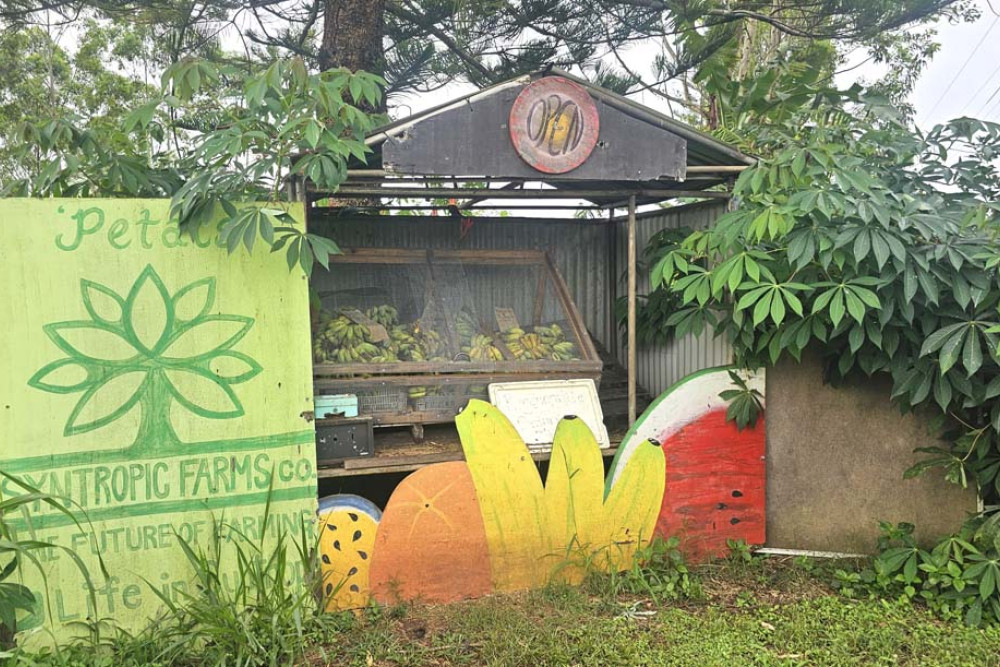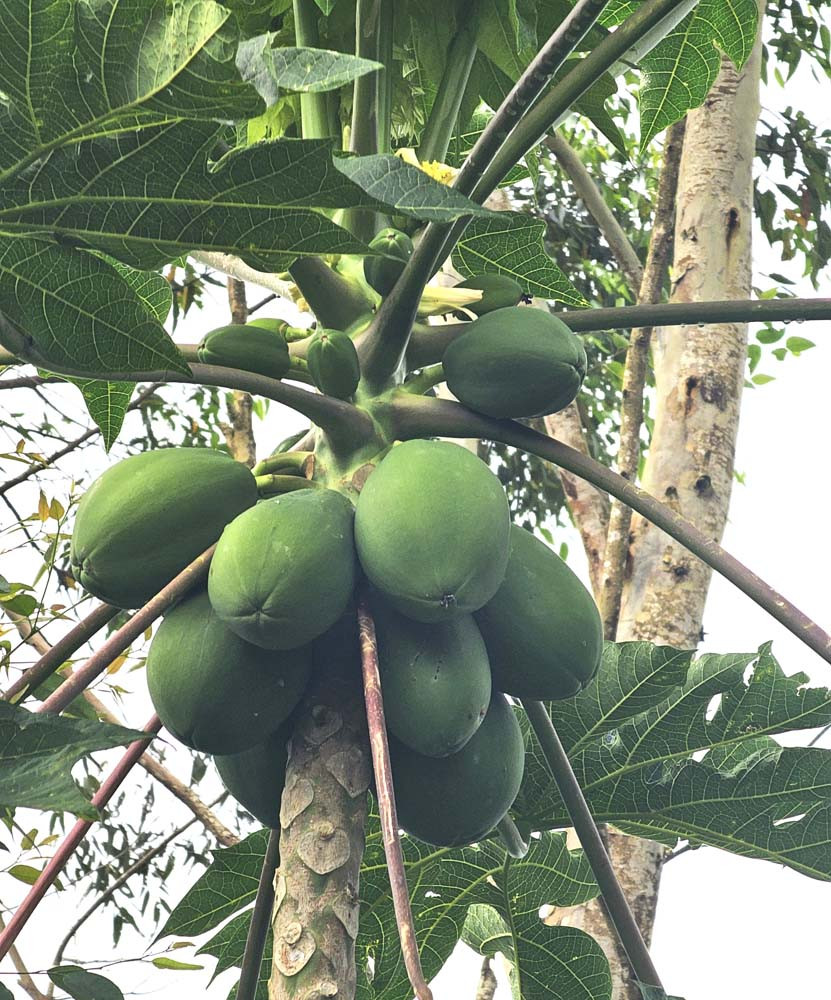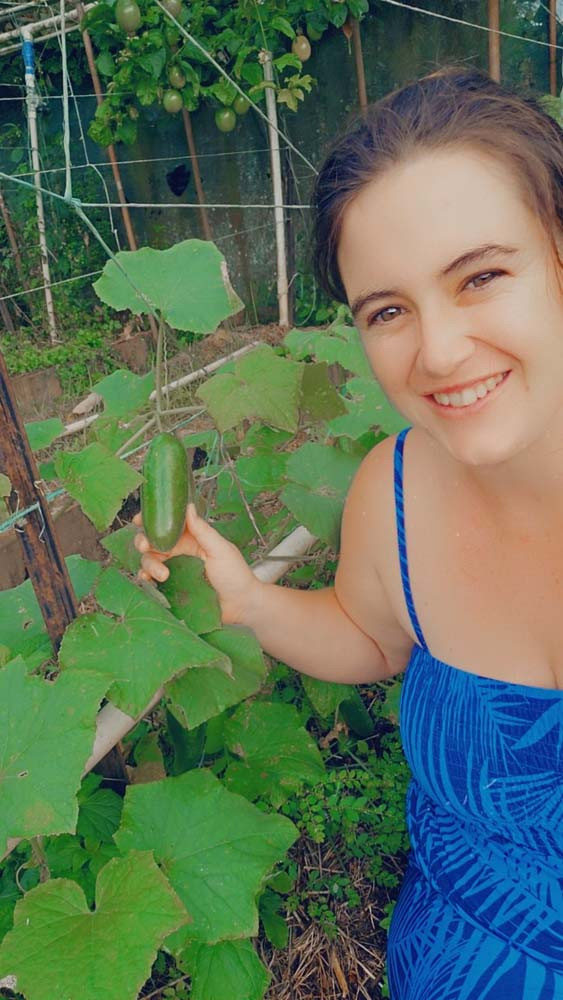On The Land
13 April, 2024
‘Tool box’ approach to farming reaps healthy living benefits
AFTER viewing a program which had eye-opening revelations about what’s really in the food we eat, Tablelands Regen Hub co-owner Racquel Hawes was spurred into action, embarking on a complete lifestyle overhaul.

She was particularly inspired by a quote from Heather Morgan: “Any time you eat or drink you are either feeding disease or fighting it.”
“This quote is one of my absolute favourites. I actually found it when I was watching the very first episode of a show called Transcendence Episode 1: What’s In Our Food?,” Racquel said.
“This episode changed my life completely as did this quote. The way I approach my diet, my health and my entire life and my daughters’ comes from this quote.”
Racquel's family has a rich heritage deeply rooted in farming. They have had involvement in several different agricultural industries which have been both livestock and plant-related.
“Both sides of my family are generational farmers, my mother’s parents were dairy and cattle farmers originally in Millaa Millaa, and my father’s parents farmed this exact property,” she said.
“My father then farmed here and now myself and my daughters farm with him.
“My parents were originally flower farmers but after being decimated by both Cyclone Larry and Cyclone Yasi and my father having major health issues due to the amount of chemicals being used, we needed to make a change.
“Originally, we moved into Permaculture, then into Mass Humus/Regen Ag, then learnt about Biodynamics, then Syntropics, and then moved into Korean natural farming and Jadam as well.
“These changes took place from 2006 through to 2012 when we became fully organic and never looked back.”
Regenerative agriculture is an approach to farming that focuses on improving and restoring the health of the land and ecosystems. It goes beyond sustainable agriculture, aiming not only to maintain but also to regenerate soil health, biodiversity, and water resources.
Key principles of regenerative agriculture include minimising tillage, keeping the soil covered with vegetation or organic mulch, diversifying crop rotations, integrating livestock, and using natural fertilizers and pest control methods.
This approach emphasises the “interconnectedness” of soil health, plant health, and animal health within the farming system.
By enhancing soil fertility and structure, increasing biodiversity, and promoting ecosystem resilience, regenerative agriculture aims to create productive and sustainable agricultural systems while mitigating environmental degradation and climate change impacts.
“We practice a variety of regenerative practices in what a friend of ours likes to call a ‘tool box’ approach,” Racquel said.
“I don’t believe in identifying a specific method of regenerative farming as being better than another, but more so, as all being tools in a tool box that we use at different stages for different reasons.
“All our produce is grown using different regenerative methods depending on the crop and the area of the farm in which it is being grown.
“All of our fruit trees and root crops are grown in our Syntropic system whereas our herbs, greens and other vegetables are grown in our other smaller horticulture bed systems.”
Racquel’s passion and vibrancy for her agricultural and lifestyle choice is evident.
“I began the Tablelands Regen Hub with help from close family and friends to educate and inspire others to grow, cook and eat ‘regenerative food’,” she said.
“I honestly believe there is no future in food and farming without the use of regenerative practices.
“Our aim is to foster unity and community through regenerative practices by creating a hub that inspires and empowers individuals as well as our local community to learn and live healthier lifestyles.”
Situated in Tolga on six acres adjacent to the Kennedy Highway, the property hosts a diverse range of crops, comprising of vegetables, fruits and herbs.
“We grow a variety of fruit from bananas, avocado, citrus, papaya, soursop, rollinia, dragon fruit as well as greens like rocket, lettuce and herbs,” Racquel said.
“We also grow zucchini, cucumber, eggplant and really whatever we like to eat. We grow the food we like to eat and the excess is the produce we sell.
“We grow only what is in season, so our crops change based on the season, as it's of course, in season for a reason.”
In every agricultural pursuit, pests and diseases are inevitably faced.
“Yes, we encounter pests, as does everyone else, however we mitigate these pests via use of natural inoculants and soil amendments,” Racquel said.
“Pest species are those in conflict with human economic systems.
“I think it's important to remember that we built our farms and businesses in natural habitats that homed a variety of species, some of which we define as pests, but really they are just conflicting with our push to create farms and towns within their home.
“We also practice sharing our crops with other species by planting an abundance, we get some to eat and sell, and so do the animals.”
Tablelands Regen Hub produce is sold to The Humpy in Tolga and the Atherton Food Co-op.
Racquel said value-adding of farm produce also occurs with produce, which may not meet cosmetic standards for sale (seconds), being transformed and incorporated into delectable baked products.
“Our ‘Regen Bites’ range, all of which is completely gluten-free, includes banana cakes, pineapple cakes, sticky date pudding as well as other delicious options,” Racquel said.




